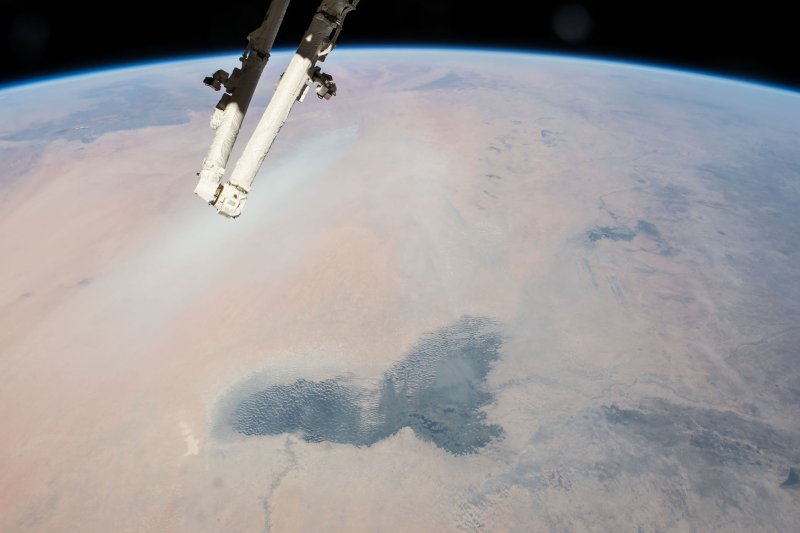- begin quote from:
- Scientists say humans may have triggered desertification of the Sahara
Scientists say humans may have triggered desertification of the Sahara
The movement of early pastoral communities in the Nile Valley is correlated with the proliferation of scrub vegetation in the Sahara.The Sahara Desert may have formed with the help of human activity in the Nile Valley. Photo by NASA/UPI| License PhotoMarch 14 (UPI) -- The desertification of the Sahara, which began 10,000 years ago, may have been at least partially caused by humans.Most studies suggest the formation of the Sahara Desert, the world's largest hot desert, was brought about by changes in regional vegetation patterns and a shift in Earth's orbit. But some scientists have argued human activities may have encouraged the Sahara's formation."In East Asia there are long established theories of how Neolithic populations changed the landscape so profoundly that monsoons stopped penetrating so far inland," David Wright, a researcher at Seoul National University, said in a news release.The spread of scrublands have previously been linked to the desertification of North Africa. When Wright surveyed archaeological data from the region, he found the movement of early pastoral communities in the Nile Valley tracked closely with the proliferation of scrub vegetation.Wright and his colleagues suggest the introduction of livestock in North Africa, more than 8,000 years ago, altered the region's vegetation, suppressing the growth of larger bushes and trees. Less vegetation left the region's surface more exposed and reflective, altering the atmospheric conditions. These changes diminished the impact and reach of Africa's seasonal monsoons, further encouraging the development of scrub vegetation and desert -- a feedback loop of desertification.Wright, whose latest analysis was published in the journal Frontiers in Earth Science, believes lakebed sediments will further illuminate the role humans played in the Sahara's desertification."There were lakes everywhere in the Sahara at this time, and they will have the records of the changing vegetation," Wright said. "We need to drill down into these former lake beds to get the vegetation records, look at the archaeology, and see what people were doing there."Related UPI StoriesTopics: David Wright
To the best of my ability I write about my experience of the Universe Past, Present and Future
Top 10 Posts This Month
- Here's how much ACA premiums would have risen this year without tax subsidies:
- Trump to make announcement with Hegseth on shipbuilding from Mar-a-Lago
- gold has surged 70% since the Start of the Year
- How the global food system is impacting obesity and climate change: Study
- Deputy AG says removing photos from Epstein files has 'nothing to do' with Trump(Sure thing) (ha ha)
- As storms inundated Washington state, federal grants for flood mitigation work sat on hold
- reprint of: My Path to Enlightenment from 2011
- Remembering the treasured films of Rob Reiner
- quote from Wikipedia: Mark Carney
- What is the main weakness of a Subaru 2017 PZEV engine: The Oil Seals and Gaskets. Why? (Part 2)
Monday, March 26, 2018
Scientists say humans may have triggered desertification of the Sahara
Subscribe to:
Post Comments (Atom)


No comments:
Post a Comment